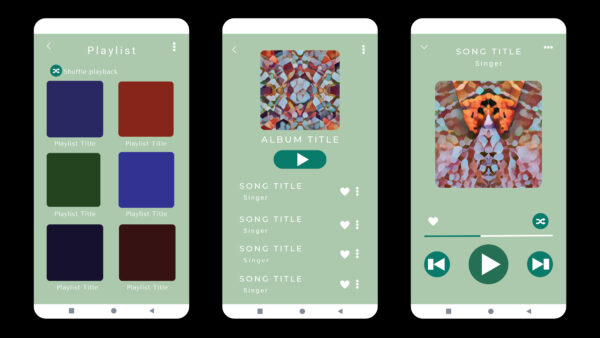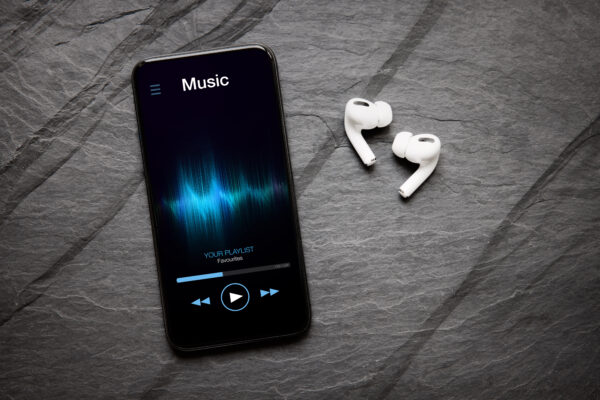Playlists are a great way to reconnect with music after getting a cochlear implant – it’s just about finding the right type of music, says renowned blues musician and cochlear implant recipient Richard Reed. Richard offers 6 tips to create your own playlist and shares his curated playlist for people with cochlear implants.
Richard’s re-introduction to music
For Richard Reed, a professional blues musician, it was critical to re-introduce music to his life after losing his hearing. But he realized that enjoying music after receiving a cochlear implant requires time and effort.
“When I first got my cochlear implant, music sounded like a wall of loud, rhythmic white noise. And singing sounded like a bunch of cartoon weasels arguing,” he remembers.
Richard learned that a cochlear implant user’s brain needs to re-learn how to interpret sounds.
“You use a different part of your brain to process music, so music and singing can be demanding with a cochlear implant. Pitch is different, timbre is different, even acoustic instruments can sound electric. It’s a whole new challenge.”
Creating a music playlist
One way to help re-train your brain to appreciate music is by creating a playlist.
To help you get started, and to expose you to a range of music, Richard has devised a Spotify® playlist, Richard’s CI Music Beginners. The list of 46 pieces encompasses music with different instruments from different genres, including flamenco guitar, drums, cello and even ukuleles, as well as a range of songs with lyrics.
Here’s a selection from the playlist:
- “Fur Elise”, Boccherini Guitar Quartet
- “Killing me softly”, Gypsy Flamenco Masters
- “I walk the line”, Johnny Cash
- “Heartbreak Hotel”, Elvis Presley
- “Mercedes Benz”, Janis Joplin
- “The girl from Ipanema”, Antonio Carlos Jobim & Frank Sinatra
- “Funky Drummer”, James Brown
- “Don’t know why”, Norah Jones
- “Up on the roof”, The Drifters
To help you create your own playlist, here are 6 tips from Richard:
- Start with music you know
Simple and familiar melodies will always be the gold standard for initial forays into music with a cochlear implant, Richard says.
- Keep it simple at first
Start with a plain melody performed on just one or two instruments because rich, complex sounds are harder to understand. Gradually introduce new but similar music and extend your library slowly.
- Introduce variations of familiar music
Some cochlear implant users find it difficult to enjoy familiar music because it suddenly seems so different. Start with a new song in a similar style, perhaps by a favorite artist, and slowly try to appreciate new favorites.
“Once in a while, try listening to different versions of a song from your childhood. There’s a nice rendition of Peter and the Wolf on Spotify with narration by David Bowie, and there are snippets on YouTube™.”
- Repeat, repeat, repeat
Richard says that repeated listening is one of the big keys to success, so don’t give up if music doesn’t sound the way you remember it.
“Sometimes we must find music merely tolerable before finding it enjoyable,” he says.
- Challenge yourself when you’re ready
Consider listening to difficult pieces occasionally. By comparison, simpler music will seem easy!
- Be open-minded
Richard says you should be prepared to experiment and try not to let genre matter too much. Richard’s own playlist includes Mozart, a guitar version of Für Elise by Beethoven, Johnny Cash and Janis Joplin.
“Take this challenge as your chance to make new favorites, to find music where you don’t expect it,” he says.
Listen to Richard’s Spotify playlist here.



